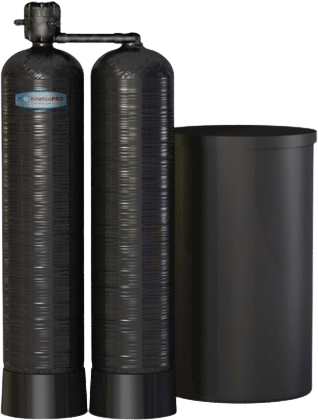The quality of a home’s municipal water supply can be summarized as either ‘hard’ or ‘soft’. If you have hard water, that means there is a larger amount of minerals present. Soft water doesn’t contain large quantities of calcium or magnesium and washes cleaner – leaving behind a ‘softer’ feeling.
Here at Shelton’s Water, we believe in providing our customers with the cleanest, best-tasting and safest water available. Whether you’re in the market for a water softener, researching a whole-home filtration system or are curious about the impact your water has on your plumbing, we’re here for you!
What Are The Advantages Of Soft Water?
As mentioned above, soft water contains fewer hard minerals than the majority of municipal water. This type of water is better for cleaning because it doesn’t cause mineral stains and soap scum.
Because it rinses clean, it’s more efficient when you’re washing and can save you money. You’ll spend less on utilities since there won’t be a need to rewash dishes and clothes or take longer showers to rinse completely and feel really clean.
Does Soft Water Have Any Health Risks?
If your typical diet consists of foods rich in calcium and magnesium, there are probably no health risks in consuming water that has low concentrations of such minerals. Soft water may cause an issue for those who have high blood pressure since soft water is high in sodium and can cause a rise in blood pressure.
Some individuals that have high blood pressure are advised not to use salt in their food, so they might also be advised not to drink soft water. As an alternative, they can look for a system that makes use of potassium rather than sodium to soften drinking water. Those with other health concerns can consult a cardiologist to know how a water softener can affect blood pressure.
Homeowners with an old and untreated plumbing system should have their water tested for lead, among other contaminants. It is more likely for soft water to capture lead from the inner portion of older water pipes. Many public water utilities are willing to test home water for free or a reasonable amount.
How Does A Water-Softening System Work?
A water softener works by letting hard water run through a resin that is coated with positively-charged sodium ions. These molecules have a net electric charge. Sodium concentrations take the place of magnesium and calcium in the water.
Water softeners need to be continuously maintained and sodium pellets should be added so the resin remains electrically charged. A number of systems use potassium pellets rather than sodium. Others use citric acid, magnets or other ways to reduce the concentrations of calcium and magnesium in the water.
Reach Out To Shelton’s
A lot of Dallas Fort Worth Metro residents drink tap water without experiencing any side effects. Soft water with higher sodium levels can pose a risk for some people, but this can be addressed by choosing a potassium-based softening system.
For those concerned about higher sodium levels, soft water can be reserved for purposes other than drinking – like bathing, dishwashing and laundry. If you’re interested in investing in a water softener, reach out to our team to learn more.
We can discuss with you how your new system will function and how it should be maintained. Do you need a water softener installation in Arlington? Are you searching for a water filtration installer that you can trust? Get in touch with us — we can help!





